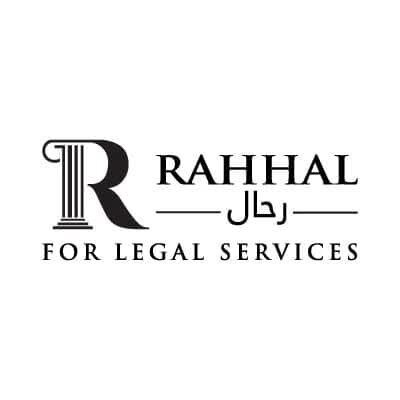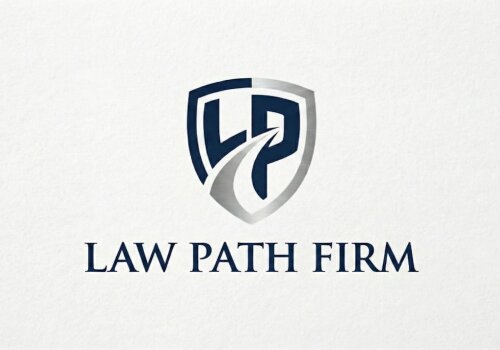Best Conveyancing Lawyers in Hashemite Kingdom of Jordan
Share your needs with us, get contacted by law firms.
Free. Takes 2 min.
Free Guide to Hiring a Real Estate Lawyer
Or refine your search by selecting a city:
List of the best lawyers in Hashemite Kingdom of Jordan


About Conveyancing Law in Hashemite Kingdom of Jordan
Conveyancing refers to the legal process of transferring ownership of real estate from one party to another. In the Hashemite Kingdom of Jordan, this process is regulated by various laws and governmental procedures to ensure that property transfers are conducted fairly and transparently. Conveyancing law covers sales, purchases, gifts, inheritance, and sometimes leasing of properties. The overall aim is to protect the interests of both buyers and sellers, ensuring all legal requirements are met during the property transfer process.
Why You May Need a Lawyer
Navigating property law and conveyancing procedures in Jordan can be complex, especially given the detailed requirements set out by laws and governmental bodies. Here are some situations where hiring a lawyer is highly advisable:
- Purchasing or selling real estate, especially if you are unfamiliar with legal documentation or procedures.
- Handling inheritance or gifted property transfers, which may involve additional legal scrutiny and family law issues.
- Resolving disputes over property boundaries, title deeds, or previous ownership records.
- Managing legal issues involving non-Jordanian buyers or sellers, as additional regulations may apply.
- Clarifying tax obligations, registration fees, and other financial charges linked to property transactions.
- Reviewing or drafting contracts to ensure they are legally compliant and protect your interests.
Local Laws Overview
Conveyancing in Jordan is primarily governed by the Land and Property Law, along with specific regulations issued by the Department of Lands and Survey. Some key aspects to be aware of include:
- All land ownership and transaction records must be overseen and approved by the Department of Lands and Survey.
- Foreign nationals are subject to limitations when purchasing property in Jordan, and often require special approvals.
- A sale or transfer agreement must be registered and stamped by relevant authorities to be valid.
- Notarization of documents is an essential step in legally recognizing most transactions.
- Inheritance of property is regulated by both civil law and, for Muslim families, relevant Sharia law provisions.
- Fees, property taxes, and government charges must be paid before registration can be finalized.
- Disputes over property title, boundaries, or claims can be escalated to the courts if not resolved amicably.
Frequently Asked Questions
What documents are needed to transfer property ownership in Jordan?
Typically, you will need a valid title deed, identification for all parties, a signed sale or transfer agreement, and sometimes proof of cleared taxes or municipal fees.
Can foreigners buy property in Jordan?
Yes, but foreign nationals often face restrictions and must obtain approval from the Council of Ministers. Restrictions can vary depending on the property location and intended use.
How long does the conveyancing process take?
If all documents are in order, the process can usually be completed within a few weeks. Delays can occur due to incomplete paperwork or legal issues.
Are verbal property agreements legally binding in Jordan?
No, property transfers must be in writing, registered, and conducted in accordance with the requirements of the Department of Lands and Survey.
What fees are involved in property transactions?
Fees usually include government registration charges, transfer taxes, stamp duties, and sometimes lawyer or agent fees. The exact amount depends on the value and type of property.
Do I need to have a lawyer to buy or sell property?
While not strictly required by law, it is strongly recommended to ensure contracts are accurate, legal requirements are met, and your interests are protected.
What happens if there is a dispute over property title?
Disputes can be submitted to the Department of Lands and Survey or escalated to the Jordanian courts for resolution.
How is inherited property transferred?
In cases of inheritance, legal heirs must provide relevant death and inheritance certificates, and may need to follow Sharia law rules when applicable.
Can existing property rights be challenged after a sale?
If procedures are correctly followed and the transaction is duly registered, it is rare for rights to be challenged. However, failure to comply with legal requirements can lead to disputes.
What is the role of the Department of Lands and Survey?
This governmental body registers property transactions, oversees title deeds, collects taxes and fees, and resolves some property-related disputes.
Additional Resources
Several organizations and governmental bodies provide information and support related to conveyancing in Jordan. Helpful resources include:
- The Department of Lands and Survey - for registration, records, and regulatory information.
- The Jordanian Bar Association - for referrals to qualified property lawyers.
- Ministry of Justice - for guidance on legal rights and dispute resolution.
- The Amman or local municipalities - for property tax and zoning queries.
Next Steps
If you are considering buying, selling, or transferring property in the Hashemite Kingdom of Jordan, consider the following steps:
- Collect all necessary documents, including title deeds and identification.
- Consult with a qualified conveyancing lawyer to review contracts and advise on your rights.
- Contact the Department of Lands and Survey to initiate the registration process and clarify any doubts.
- Ensure all taxes and fees are calculated and paid in advance to avoid delays.
- If you face any legal issues, seek timely legal support to address disputes before finalizing transactions.
Conveyancing in Jordan is a detailed legal process. Taking proper steps and obtaining expert advice can help ensure a smooth and secure property transfer.
Lawzana helps you find the best lawyers and law firms in Hashemite Kingdom of Jordan through a curated and pre-screened list of qualified legal professionals. Our platform offers rankings and detailed profiles of attorneys and law firms, allowing you to compare based on practice areas, including Conveyancing, experience, and client feedback.
Each profile includes a description of the firm's areas of practice, client reviews, team members and partners, year of establishment, spoken languages, office locations, contact information, social media presence, and any published articles or resources. Most firms on our platform speak English and are experienced in both local and international legal matters.
Get a quote from top-rated law firms in Hashemite Kingdom of Jordan — quickly, securely, and without unnecessary hassle.
Disclaimer:
The information provided on this page is for general informational purposes only and does not constitute legal advice. While we strive to ensure the accuracy and relevance of the content, legal information may change over time, and interpretations of the law can vary. You should always consult with a qualified legal professional for advice specific to your situation.
We disclaim all liability for actions taken or not taken based on the content of this page. If you believe any information is incorrect or outdated, please contact us, and we will review and update it where appropriate.
Browse conveyancing law firms by city in Hashemite Kingdom of Jordan
Refine your search by selecting a city.














